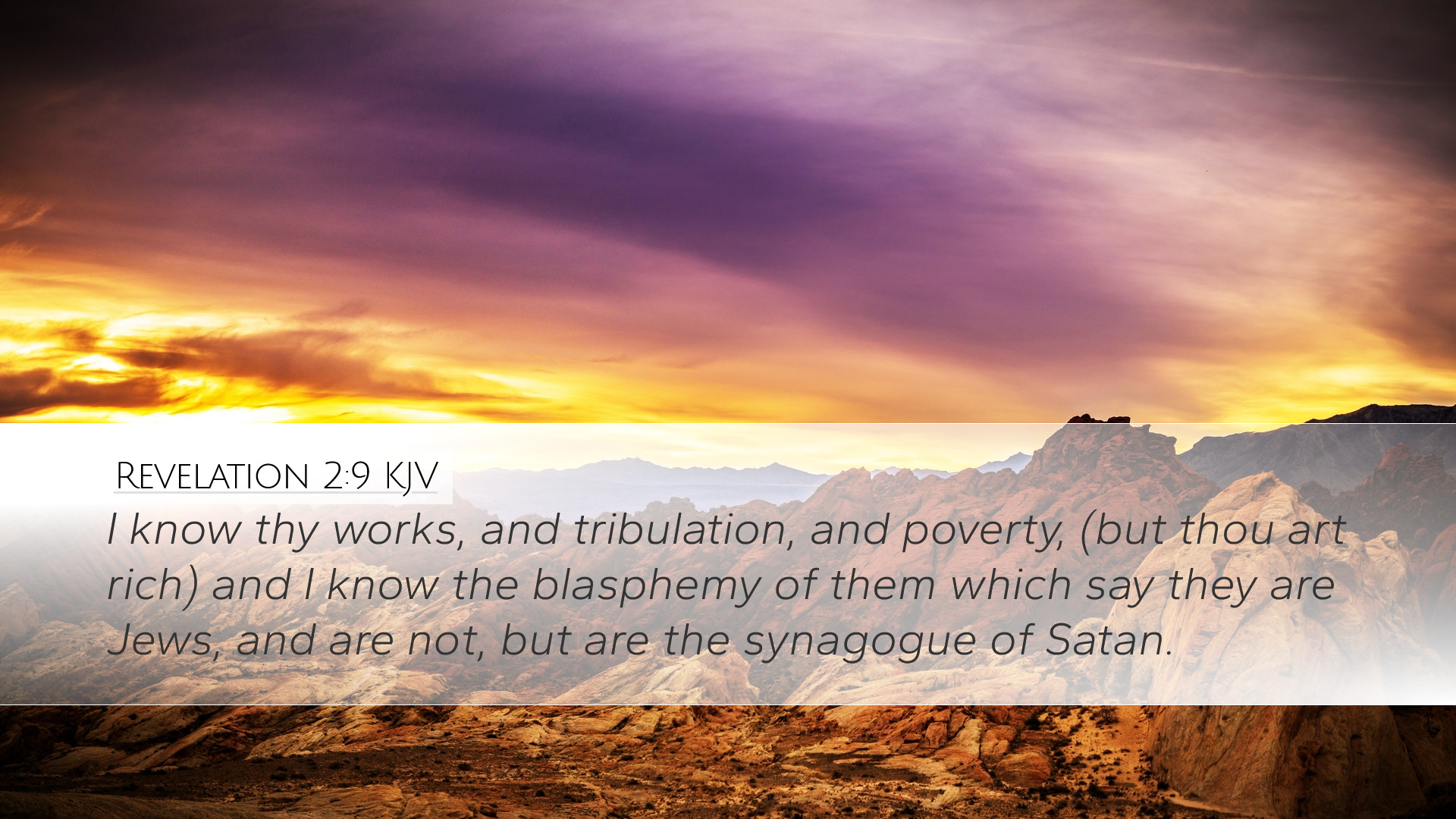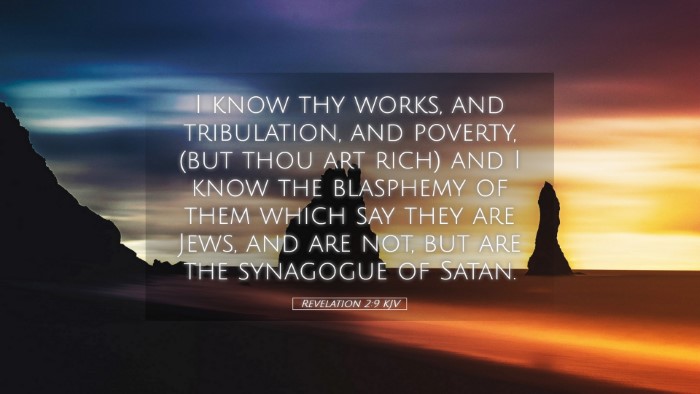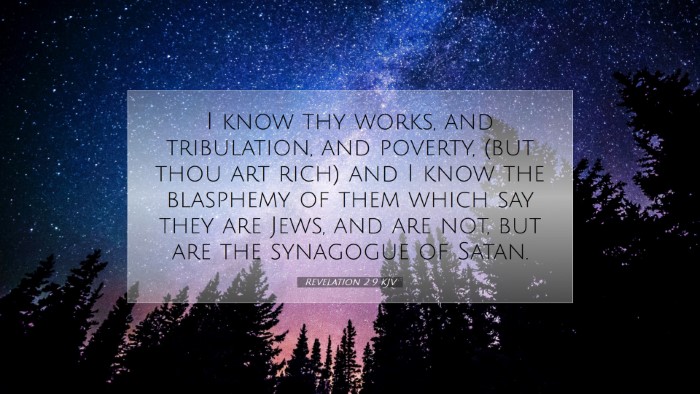Commentary on Revelation 2:9
Verse: "I know your works, tribulation, and poverty (but you are rich); and I know the blasphemy of those who say they are Jews and are not, but are a synagogue of Satan."
Introduction
The book of Revelation opens the door to profound apocalyptic knowledge and spiritual insight. In Revelation 2:9, Jesus addresses the church in Smyrna, recognizing their tribulations and poverty yet affirming their spiritual richness. The significance of this verse lies not only in its historical context but also in its timeless application to believers facing trials.
Contextual Analysis
The church in Smyrna was situated in a vibrant commercial city that was known for its loyalty to Rome and its emperor worship. Christians there experienced persecution for their faith. Recognizing this context helps us appreciate the depth of the message conveyed in this verse.
Insights from Matthew Henry
Matthew Henry emphasizes that Christ’s knowledge of the conditions of His people is absolute. He writes:
- Knowing Their Conditions: "I know your works" reflects Christ’s intimate understanding of His followers' experiences, particularly their struggles and perseverance in the face of trials.
- Poverty and Riches: Henry elucidates the paradox of their situation; the physical poverty of the Smyrnian church contrasted sharply with their spiritual wealth. Their poverty was a condition of this world, but they held eternal riches in Christ.
Insights from Albert Barnes
Albert Barnes provides a detailed examination of the phrase "they are rich." He interprets this richness as a deeper spiritual wealth that transcends material possessions:
- The Spiritual Wealth: Barnes notes that "richness" here indicates a wealth that is not visible but is profoundly significant – full of spiritual grace, hope, faith, and love.
- Understanding Blasphemy: Addressing those who falsely identify as Jews, Barnes outlines the seriousness of misleading others regarding one's spiritual heritage. The mention of "the synagogue of Satan" represents a powerful condemnation of those who oppose God’s plan and people.
Insights from Adam Clarke
Adam Clarke’s commentary provides additional theological depth to Revelation 2:9:
- Affliction as a Test: Clarke points out that the tribulations faced by the Smyrnians are a common experience for true believers. He reflects on the nature of their afflictions, asserting that such trials often serve to refine and prove the faith of the believers.
- Please to Be Informed: He also emphasizes that the recognition of spiritual wealth amidst trials is critical for believers today, guiding them toward understanding their true identity and value in God's kingdom.
Theological Implications
This verse speaks volumes about the nature of true wealth in the sight of God. The church in Smyrna serves as a vital reminder that:
- Worldly riches do not equate to spiritual depth: As emphasized by all commentators, the truth that one can be materially poor yet spiritually rich is critical for understanding one's place in God's economy.
- Persecution refines identity: The experience of suffering often shapes one's faith and witness, wherein believers find their identity not in societal approval but in their relationship with Christ.
- The danger of falsehood: The mention of false Jews raises an important point about the necessity of authenticity in one’s faith. The church must be vigilant against those who distort or deny the truth of the Gospel.
Application for Today
Revelation 2:9 invites pastoral and theological reflection on how modern believers navigate affliction and material scarcity.
- Encouragement amid trials: Pastors can use this verse to remind congregants that their struggles are noted by Christ, encouraging resilience in their faith journey.
- Teaching on true wealth: This passage serves as a platform for teaching about the nature of true wealth, leading believers to embrace spiritual disciplines that nurture their inner lives.
- Warning against complacency: The church today is equipped to examine its own identity, ensuring it remains aligned with Christ’s teaching rather than succumbing to societal pressures.
Conclusion
Revelation 2:9 resonates with profound truths for Christians facing various forms of adversity. By drawing from the insights of esteemed commentators like Matthew Henry, Albert Barnes, and Adam Clarke, we glean a rich understanding that the wealth found in Christ outshines any worldly possession. This text stands as a call to recognize our identity in Him, urging us to claim our position in His kingdom while navigating the challenges of our present reality.


